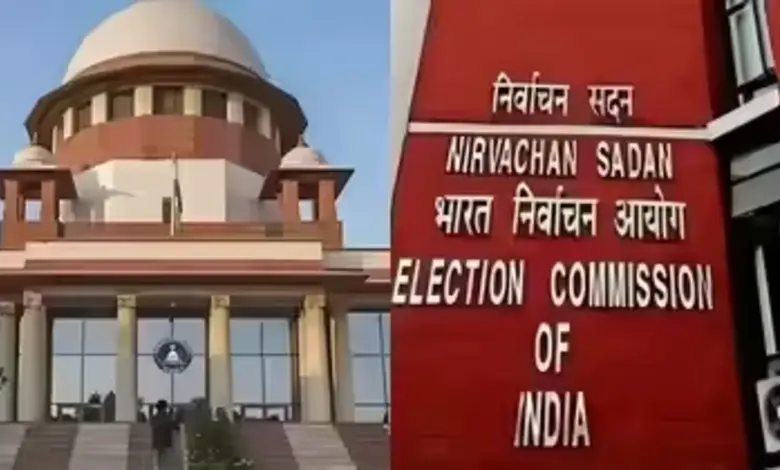Election Commission Rejects Aadhaar, Voter ID, and Ration Cards for Bihar Voter Roll Revision

NEW DELHI: The Election Commission of India (ECI) has informed the Supreme Court that Aadhaar cards, voter ID cards, and ration cards are not acceptable as valid documents for verifying voter eligibility in Bihar’s ongoing Special Intensive Revision (SIR) of electoral rolls. In a detailed affidavit, the ECI explained its stance, emphasizing that these documents do not meet the necessary criteria for confirming eligibility under Article 326 of the Constitution, which mandates that only Indian citizens aged 18 and above, residing in a constituency, can be enrolled as voters.
The ECI’s position comes in response to the Supreme Court’s suggestion on July 10, 2025, that it consider including Aadhaar, voter ID cards (Electors Photo Identity Cards or EPIC), and ration cards among the 11 documents currently accepted for the SIR process. The court noted that the ECI’s list of approved documents is not exhaustive and suggested these widely held documents could facilitate voter verification. However, the ECI countered that relying on existing voter ID cards would undermine the purpose of the SIR, which is a de-novo exercise aimed at creating a fresh electoral roll. The commission argued that EPIC, being a product of previous electoral rolls, cannot serve as a standalone verification tool for a new roll.
Regarding Aadhaar, the ECI clarified that it serves only as proof of identity, not citizenship, and is therefore inadequate for verifying voter eligibility under Article 326. The commission also highlighted the prevalence of fake ration cards across the country, rendering them unreliable for voter verification, though Electoral Registration Officers may accept them on a case-by-case basis if deemed trustworthy.
The ECI’s affidavit was filed in response to petitions from 11 opposition parties, NGOs, and Bihar residents challenging the SIR process. These petitioners, including the Association for Democratic Reforms, argued that the exercise could lead to mass disenfranchisement, particularly among marginalized groups, due to the exclusion of widely available documents like Aadhaar and ration cards. They also questioned the timing of the SIR, with Bihar’s assembly elections scheduled for November 2025, and raised concerns about the ECI’s authority to conduct what they claim resembles a citizenship verification exercise, a responsibility they argue belongs to the Ministry of Home Affairs.
ALSO READ : Bihar Assembly Election: Nitish Kumar Rolls Out Free Electricity and Teacher Recruitment Drive Ahead of Polls
The ECI defended its constitutional authority under Article 324 to oversee electoral roll preparation and emphasized that exclusion from the voter list does not affect an individual’s citizenship status. The commission further noted that the SIR process complies with the Representation of the People Act, 1950, and is designed to ensure the accuracy of electoral rolls. The Supreme Court is set to hear the matter again on July 28, 2025, before the draft electoral roll is published on August 1.
In a related development, the Meghalaya High Court recently ruled that Aadhaar alone cannot be the sole identity proof for accessing government schemes, reinforcing the ECI’s stance that Aadhaar is primarily an identity document. The court stressed that alternative documents, such as PAN cards, voter IDs, or passports, must be accepted for benefits like scholarships or financial assistance for SC/ST students.
